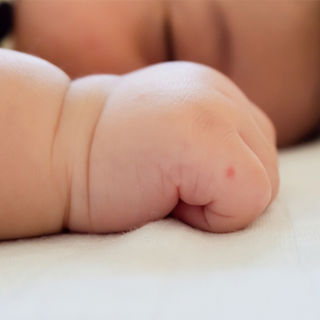
If you’re reading this, you probably think that the time has come to grow your family and you can’t wait to have an adorable miniature version of yourself. Congratulations, this is a huge step in itself. But, getting pregnant isn’t often an overnight process. While some couples may conceive within a month or two of trying, studies show that the average couple takes any amount of time between 6 months to 1 year to conceive a baby. Although it’s not quite possible to put a number on how long it can take you to get pregnant, please find below some useful tips that you can follow to try and speed up the process.
1. Chart out your ovulation schedule
Let’s go over the basics quickly. Most women ovulate once every month. During this time, the ovaries release a mature egg which travels through the fallopian tubes where it can survive for a period of 12-24 hours, during which it can potentially meet and be fertilized by a sperm. This is why it’s important to know your ovulation schedule once you decide you want to start trying to conceive.
For most women with a regular menstrual cycle, ovulation generally occurs sometime between day 12-16 before your first day of menstruation, but this window is different from woman to woman. A great way to find out when you’re ovulating is by using an Ovulation Prediction Kit or an Ovulation Bracelet. Try looking out for natural bodily signals that can help you figure out when you’re ovulating. One of these is an increase in cervical mucus, which is a sticky, vaginal discharge resembling raw egg whites. This usually happens in the days leading up to ovulation. If you’re still not sure about when you ovulate, talk to your doctor to try and chart out your ovulation schedule based on your menstrual cycle.
2. Have intercourse regularly during your fertile window
While you might think that having intercourse on the day of ovulation itself increases your chances of pregnancy, this is not entirely true. Have intercourse regularly throughout your fertile window, i.e. five days before you ovulate, at the time of ovulation and for two days after. Experts suggest that you are most fertile in the two days right BEFORE you ovulate. Even though your egg survives only up to 24 hours, your partner’s sperm can survive inside you for up to 6 days. Due to this, having intercourse before your egg is released can lead to successful implantation.
Another question that many couples ask is how often you should have intercourse during your fertile window. Experts recommend that you have intercourse either every day or every alternate day during this period. Having too much intercourse will not necessarily increase your chances but can decrease sperm motility for some men.
3. Quit your birth control pills a few months before trying to conceive
If you’re on birth control pills, most doctors will recommend that you stop taking the pill around three months before you begin trying to conceive. This will give you a chance to get your ovulation cycle back on track and help in balancing out hormones. However, there is a possibility to get pregnant as soon as you stop taking the pill.
4. Don’t ignore a visit to the doctor for a pre-conception checkup
For various reasons, many couples hesitate to consult a doctor before they start trying to have a baby. However, it can be extremely beneficial to go for a simple pre-conception checkup to rule out any health issues and to make sure that both you and your partner are ready to conceive successfully.
5. If you do use lubricant, make sure it is a sperm-friendly one
When you’re trying to get pregnant, try and avoid using lubricants as they can alter the pH balance of your vagina and affect sperm motility. That said, if you cannot have pleasurable intercourse without using lubricant, it’s perfectly okay. Simple make sure that you use a fertility-friendly lubricant such as PreSeed or any other clinically-recommended ones.
6. Make healthy changes to your lifestyle
Most women make a lot of healthy changes in their lifestyle during their pregnancy. But making healthier lifestyle choices is essential even while you are trying to get pregnant and can help create the right environment for your baby-to-be. Make simple changes - stop smoking, limit your alcohol and caffeine consumption, eat a balanced diet and get enough sleep at night. Start popping prenatal vitamins with folic acid at least one month before you start trying to conceive, to ensure proper development of the fetus once you get pregnant.
7. Enjoy the process
Don’t put too much pressure on yourselves and simply try and enjoy the process. Stress can have adverse effects and can interfere with your ovulation cycle. Calm your nerves and have fun!
Do you know any other tips for trying to get pregnant faster? Leave your suggestions below.



















